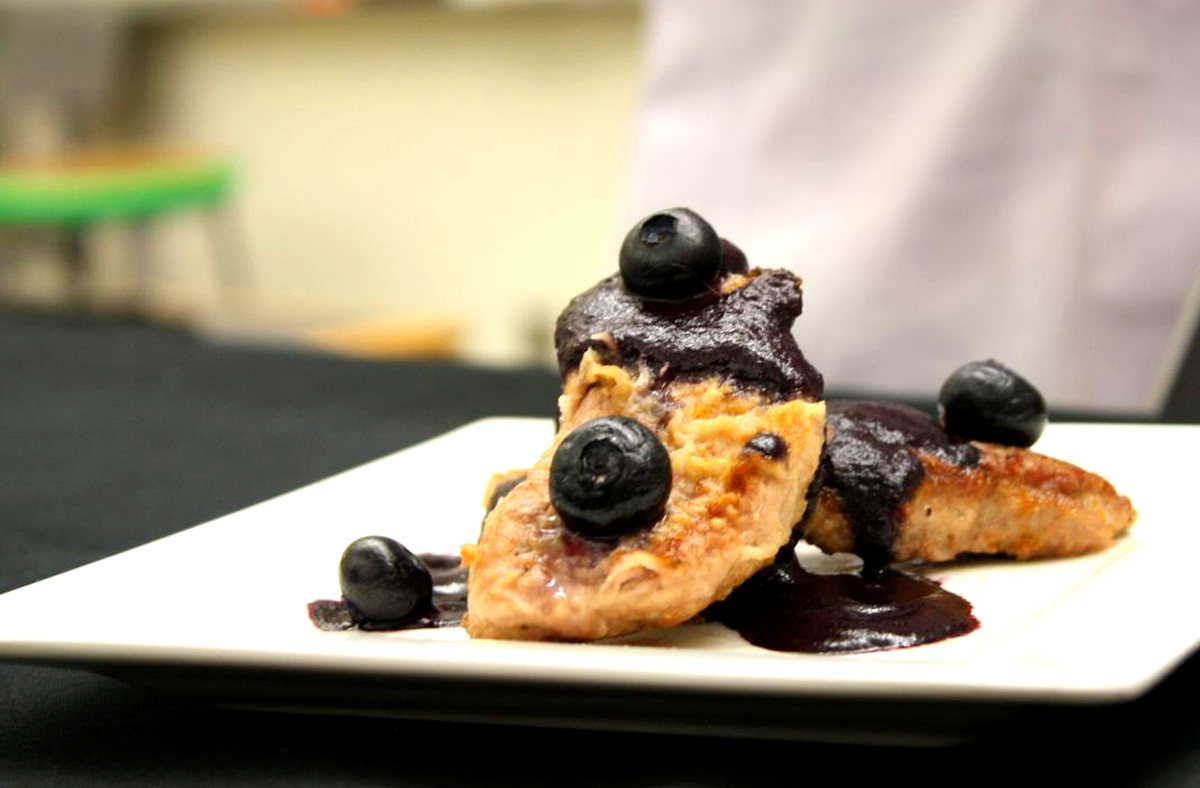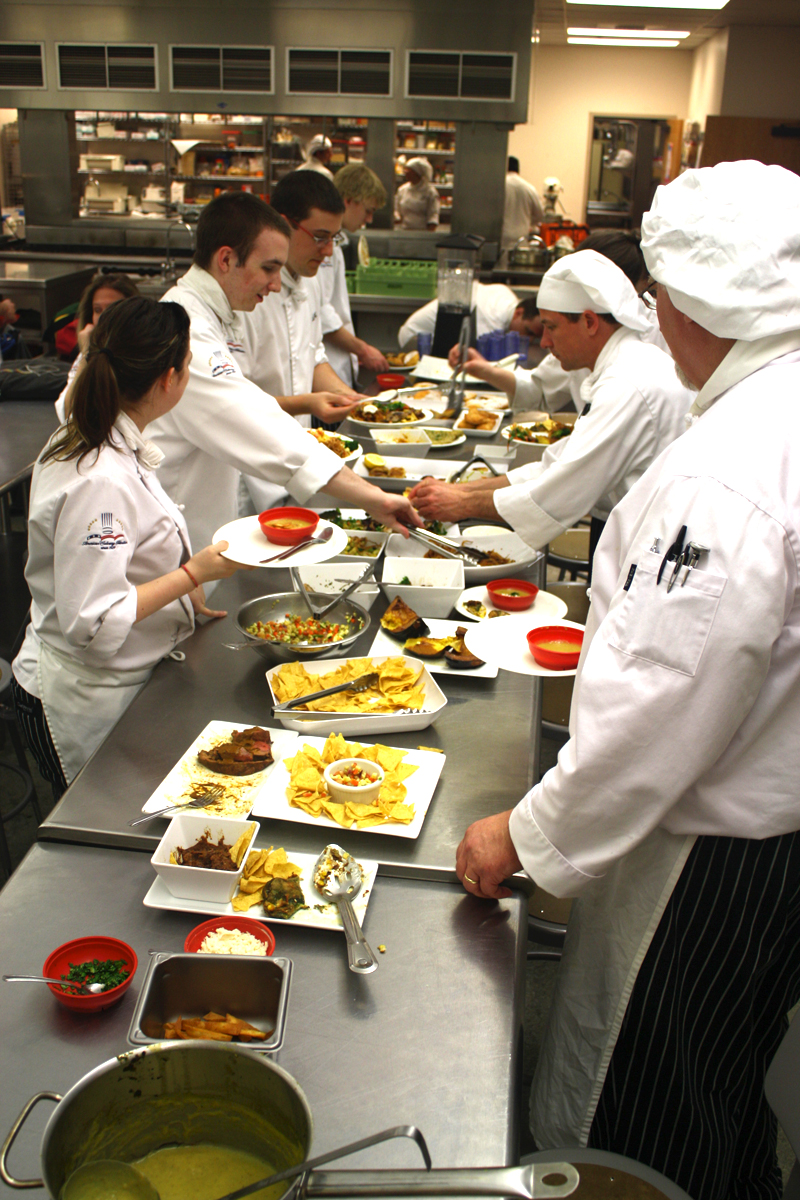Story by Taylor Woolsey
Photos by Brian Bradley & Taylor Woolsey
“Hey! Does anyone have olive oil?” a yell comes from the busy kitchen as a group of eighteen students hustles around trying to perfect dishes. It is 4:30 p.m. on a beautiful sunny day in Eugene, but these students in the Culinary Arts and Hospitality Management program at Lane Community College (LCC) are hard at work. This spring class, Advanced Cooking Theories, focuses on American fare. During the lab portion of the course, students prepare samples of various dishes from the weekly region and then enjoy the food upon completion. The clanking of pans and the sporadic yelling for ingredients is the norm for these students. It’s a crazy scene, yet this chaos has order, and is an essential part of the learning process.
“It’s not just how to slice and how to dice,” says Julie Fether, special projects coordinator for Conference and Culinary Services. “We want to make them stewards of life.” Fether, whose personal specialty dish is chicken florentine with pasta, loves working with students in the two-year program. With more than 500 years of combined industry experience, the faculty is dedicated to helping students reach their potential. Fether explains, “Our passion is infectious—once a student gets a taste of what ‘it’s really like’—we know they, too, will become excited about the work.”
Chef Clive Wanstall, instructor in the second year Advanced Cooking Theories sequence, is the life and soul of the exciting atmosphere of the current afternoon’s class. With a quirky and amiable sarcasm and bluntness, Wanstall walks about the kitchen and assists students in perfecting their dishes. When asked why he chose this as a profession he replied, “The atmosphere and job security. Everybody needs to eat.”
The atmosphere is both insane and surprisingly fun as students scramble around in their chef’s whites, the standard kitchen uniform, passing ingredients and sliding past one another. Students are laughing and smiling as they work. “We love this class,” says student Tracy Kitlarz, who has been cooking since she was three and eventually wants to open a bed and breakfast on the coast. “I like taking raw ingredients and making something out of them.” Students are encouraged to do just that as they create dishes from predetermined instruction pages while adding their own twist.
This week’s region of focus is Texas, and students are cooking up foods of the Southwest: fajitas, quesadillas, guacamole, strawberry and grapefruit salad, chicken mole, and more. Last week, students prepared meals from New Orleans. The changing theme allows the class to explore different kinds of food. Second-year student Patrick Zagorski, whose favorite dish is BBQ pulled-pork sandwiches and who would like to open a bar and restaurant, slices ingredients for his tortilla soup. It smells delicious. In fact, aromas of spice, lime, and other flavors permeate the air throughout the huge kitchen.
At the end of class, students bring their dishes to Chef Clive for tasting and feedback. There is a very Food Network-esque feeling to the process as students line up at a table and have one-on-one conversations with the chef instructor. “We each have a special, individual relationship with him,” says Kitlarz after bringing her dish to Chef Clive. Wanstall tastes his students’ samples, takes a photo of each dish, and offers advice with an excitement in his eyes that can only come from years of loving what he does.
After critiques, it is time for a feast, and all the students set up a buffet-style meal in the back of the classroom. While they eat, pictures of their dishes are displayed in a PowerPoint presentation and the students comment on their process in making their assigned dish. The Advanced Cooking Theories lab class is a unique glimpse of the praised and accredited program at Lane. The meal is delicious, the room is relaxed, and it seems as though it could have gone on all night. However, as Chef Clive pointed out, “There’s never enough thyme in the kitchen.”









